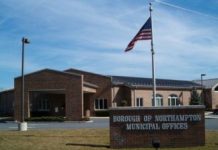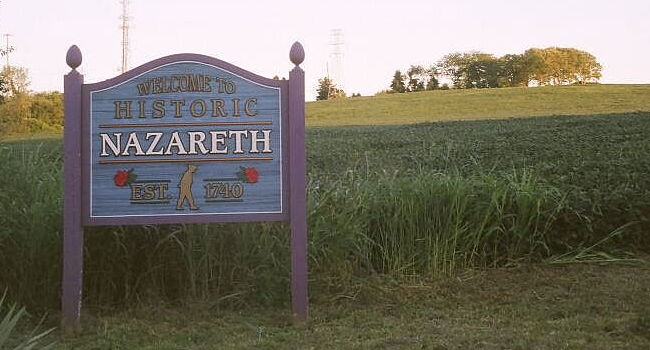During their meeting on Thursday, February 18, Northampton Borough Council asked Councilman Robert McHale to explore the benefits and costs of a stormwater fee for all borough property owners. The fee was proposed by McHale as a means of paying for MS4 improvement costs without needing to raise taxes.
“There are certainly areas we have to explore further,” McHale told council. However, he said the main advantage is that “once the fees have been collected for the appropriate amount of work…that fee structure is reduced.”
One of the improvements McHale cited is the Dry Run Creek MS4 project, which will cost the borough roughly $400,000 when it begins later this year. McHale said a fee could help cover these costs. When the project completes, the fee structure would change to cover whatever the next improvement project is.
The fee, he added, would be applied to all entities in the borough, including those that do not currently pay taxes, so that “main contributors to stormwater runoff…would also be part of the solution.”
Despite this, borough solicitor Steven Goudsouzian cautioned the borough against the fee. He called it “potentially litigious and potentially bureaucratic” if the fees are not equitable.
“You would be telling members of the borough…[they are] going to be specially assessed,” he said. “Conversely, if it is in a tax, you have some control over it. I strongly recommend against special assessments.”
“That being said,” he added, “if you want to take a look at it more…that is up to you.”
Borough entities would be assessed on the size of their impervious coverage. This worried some council members like Anthony Lopsonzski, Sr. and Kenneth Hall because a small property with more impervious coverage would be assessed at a higher fee structure than a large property with less impervious coverage.
Councilman Anthony Lopsonzski, Jr. was also hesitant, citing that a tax increase may be placed on borough residents in other ways.
“I understand the core concept and essential need for it,” he said, “[But] this whole concept of a fee is designed to get entities that do not pay taxes [like the school district] to contribute to special projects…if we go ahead and hand them a bill, I can all but guarantee our school taxes will increase.”
Lopsonzski, Sr. agreed.
“The way you divert your costs is to pass it on to the taxpayer,” he warned. “Do not forget our school district is 100 square miles. They are going to [raise taxes on] the other municipalities that make up the school district.”
Lopsonzski, Jr. added that the borough is about two-thirds of the way done paying for the Dry Run Creek project.
“I am in favor of doing the legwork [and] having it ready if need be,” he said of the fee, “but as of now we have a good enough handling of it with our current means and general budget.”
Goudsouzian warned council against moving forward with more studies at taxpayers’ cost.
“My concern is we are going to spend a lot of engineering dollars…and at the end of the day you are going to realize this is something you do not want to do.”
However, McHale volunteered to put together a study on 10 borough parcels to see what the minimum and maximum fees may be at no cost to the township.
This changed the opinion of many councilmembers. During a vote, six of the seven council members voted to move forward with a stormwater fee exploration if it was done by McHale as opposed to borough engineers.
“If he wants to put time in and come up with small numbers…at no cost, [then I vote] yes,” said Hall.
Lopsonzski, Jr. also voted yes, as long as it is “preliminary, back-of-the-envelopment math.”
Only Councilman Tony Pristash voted against the exploration.
“There are too many factors,” he said. “We have already hit citizens up with tax increases over the last few years.”
McHale will present his findings at an upcoming council meeting. The next borough council meeting is proposed to be held in-person on Thursday, March 4, at 7:30 p.m.









